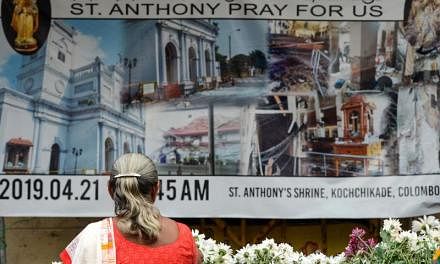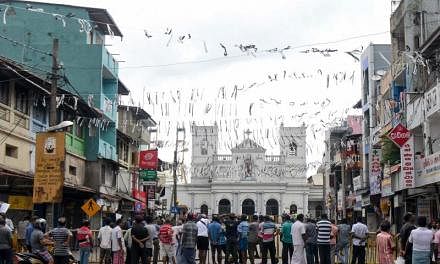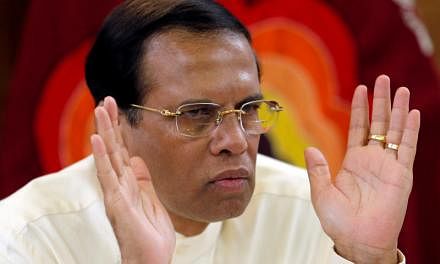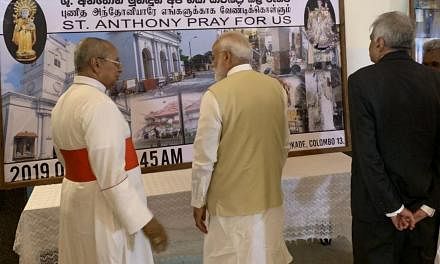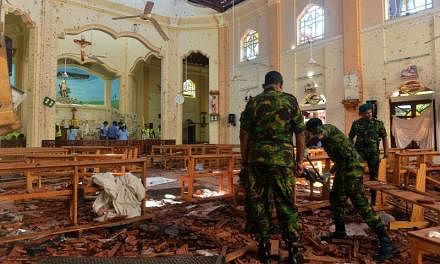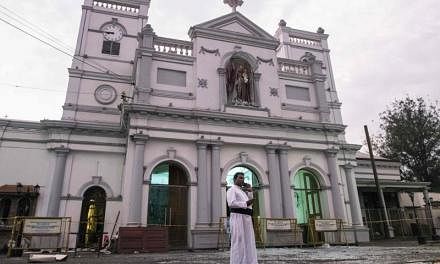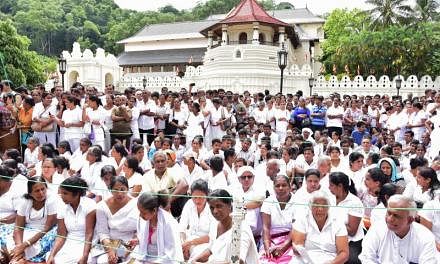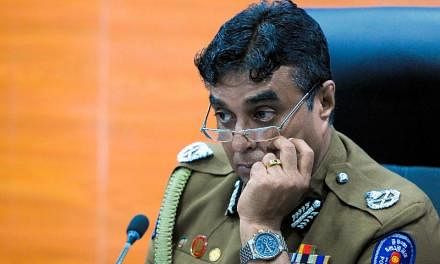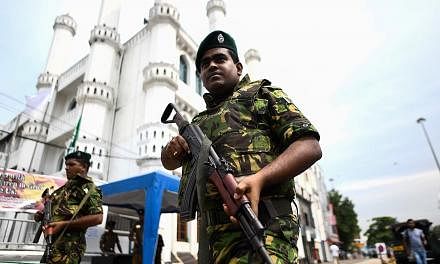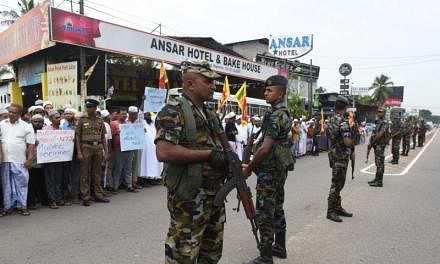COLOMBO (BLOOMBERG) - The deadly series of unprecedented attacks on Christian minorities and foreign tourists in Sri Lanka shattered years of relative calm in the country and risks dragging the island nation back to the days of violent political instability.
More than 207 people, including as many as 30 foreigners, were killed in a series of coordinated explosions on Easter Sunday (April 21) at three churches and luxury hotels across the country, including the capital city Colombo.
The authorities said there were more than 450 injured in the worst violence since the civil war ended in 2009.
The attacks follow a prolonged constitutional crisis last year, triggered when President Maithripala Sirisena sacked Prime Minister Ranil Wickremesinghe following months of political infighting.
Mr Wickremesinghe was sworn back in as prime minister in December after the Supreme Court ruled against a Sirisena plan to dissolve Parliament and call a new national vote.
But the damage was already done - it led Moody's Investors Service, Fitch Ratings and S&P Global Ratings to downgrade the country's credit rating.
"What these bombings potentially do is take it from inertia and political infighting and rudderlessness to a real fear of instability and a sense of a return to the bad old days," said Mr Alan Keenan, a senior Sri Lanka analyst with the International Crisis Group based in London.
He noted that the targeting of foreign tourists was a worrying new development in the country.
"It's striking that in almost three decades of war between the Tamils and government forces, foreign tourists were never targeted."
Sri Lanka has a history of communal violence between virtually all groups, Mr Keenan said.
"What's surprising about this is the particularly brutal and coordinated nature of the attacks and targets, this combination of what appear to be Tamil Catholic churches and high-end hotels," he said.
"These are the first classically terrorist attacks since the end of the war."
APPEAL FOR CALM
Mr Wickremesinghe said his government is taking immediate steps to contain the situation, and appealed to citizens to maintain peace and avoid propagating unverified reports and speculation.
Local media reported that the WhatsApp, Viber and Facebook platforms had been blocked temporarily to prevent false news distribution.
"You will find a downward trend in the economy," Mr Wickremesinghe said in a televised statement. "Tourism will get affected. There may be fund outflows."
The blast could not have come at a worse time for a leadership focused on accelerating growth in an economy that saw expansion dip below 2 per cent in the quarter ended December, the first time since 2014.
Sri Lanka, which has an ongoing US$1.5 billion (S$2.03 billion) loan programme with the International Monetary Fund, is aiming for 3.5 per cent growth in 2019.
"That is bad news for the country where the memories of the civil war are still very much alive," said Mr Raffaele Bertoni, head of debt-capital markets at Gulf Investment Corp in Kuwait City.
"Tourism is a very important sector for the economy and one of the major source of external reserves."
ETHNIC STRIFE
Sri Lanka has been weighed down by conflict since gaining independence from Britain in 1948.
The Sinhalese sought to disenfranchise Tamil migrant workers from India - Tamils make up 9.4 per cent of the population - and made Sinhala the official language.
In 1972, the country's name was changed from Ceylon to Sri Lanka and Buddhism was established as the main religion. Tamils are mostly Hindu.
The Liberation Tigers of Tamil Eelam, or Tamil Tigers, was formed in 1976 and began to campaign for a Tamil homeland in the north and east. The civil war that ensued saw violations from both the Tamil Tigers and the Sri Lankan military, including the use of child soldiers.
It ended in 2009 with a government victory - by then more than 100,000 had died.
Still, targeted attacks on Christian minorities have been rare.
Catholics, split between the Sinhalese majority and the Tamil minority, make up 6.5 per cent of Sri Lanka's population, according to the nation's 2012 census.
Buddhists account for 70 per cent of the total, while Hindus and Muslims make up the rest.

